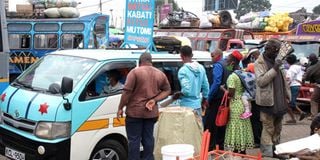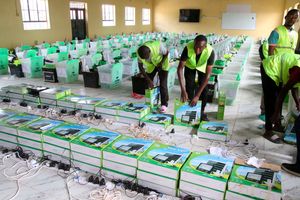Premium
Uhuru’s dilemma on locking down again or not as virus cases surge

What you need to know:
- Despite this surge in numbers, several counties are yet to meet the level of preparedness set for them.
- The number of daily confirmed cases doubled from about 200 at that time to almost 400.
- On the flipside, the government is facing a surge in infections within the civil service.
- Sources have told the Nation that the government has begun mass testing for its workers.
President Uhuru Kenyatta is facing two tough options as he prepares for the Friday national and county governments’ summit on Covid-19, which is expected to offer guidance on how to wriggle the country out of a looming disaster.
The Head of State, the Nation has been told, will use Friday’s summit to get a wider view on what can be done to save lives amid an approaching storm, before delivering his decision next week.
At the heart of the matter is whether the country’s health system is adequately prepared to weather the current surge in infections, with reports showing that most hospitals are operating past their capacities.
ECONOMY
The economy, which was on a sharp decline before the President decided to reopen three weeks ago, will also be discussed.
The question on whether law enforcement agencies have enough personnel and resources in case a lockdown is ordered will, however, will be left to the National Security Council (NSAC) to advise the President.
But before deciding whether to keep the country open or close it again, President Kenyatta will have ready examples from the neighbouring Uganda and Tanzania on how to handle the looming crisis.
Uganda, which has largely managed to keep its infections low, at least based on its numbers, has never come out of its lockdown, while Tanzania’s President John Magufuli never restricted movement and has now declared his country Covid-19-free. Both countries have, however, been opaque about their actual situation with regard to coronavirus.
NATIONWIDE LOCKDOWN
By Monday, the option of declaring another nationwide lockdown was still out of the question. Those against the shutdown within President Kenyatta’s inner circle argue that locking down the country will not yield much because the country is in the community transmission phase of the pandemic.
Additionally, there is an argument that there will be another surge in infections should the country be locked down and then reopened. This, it is argued, would badly cripple the country’s health and economic fabric.
By Monday, the national Covid-19 caseload had risen to 14,168, after 397 people tested positive. Some 12 more people died, bringing the national death toll to 250.
On July 6, the day President Kenyatta announced that he was reopening the economy in phases, Kenya had 7,866 cases and 160 deaths.
INFECTIONS SURGE
This means that in 15 days after the economy was reopened, Kenya’s infections have surged by 79 per cent, while deaths caused by coronavirus have increased by 56 per cent.
Likewise, the number of daily confirmed cases doubled from about 200 at that time to almost 400.
Despite this surge in numbers, several counties are yet to meet the level of preparedness set for them by the government as a condition for the economy to be reopened, 15 days since the cessation of movement order was lifted.
“As a ministry, we have been working very closely with the counties. We are also monitoring and assessing their efforts to attain these targets and to, in general, improve their level of preparedness,” explained Health Chief Administrative Secretary Rashid Aman Monday.
LEVELS OF PREPAREDNESS
“We will for certain know by Friday what their levels of preparedness are. We suspect that a high number of counties will meet that target by the time they meet the President.”
With critical care facilities having run out of space and patients having to contend with home-based care, the government’s options on how to handle the next phase of the pandemic are tough.
The only silver lining is that the number of daily recoveries has once again surpassed the number of confirmed cases after weeks of being on a negative trajectory.
On the flipside, the government is facing a surge in infections within the civil service, which might cripple public services once again. Several ministries, parastatals and security agencies are struggling to balance between provision of services and preventing their employees from getting infected as the virus hits the government hard.
MASS TESTING
Alarmed by the increase in infections among civil servants, sources have told the Nation that the government has begun mass testing for its workers.
This is after it emerged most government employees were deliberately failing to adhere to the rules meant to help fight the spread of the virus. In a circular sent to all heads of State corporations and departments, Head of Civil Service Joseph Kinyua on Monday night warned them against letting those working under them to continue flouting Covid-19 prevention rules.
It is said the surge in positive cases being witnessed this week is due to the results arising from tests carried out within the civil service.
The mass testing, which began last Friday, continued throughout the weekend. It is set to go on till the end of the week.





